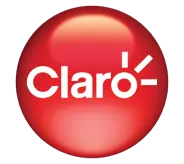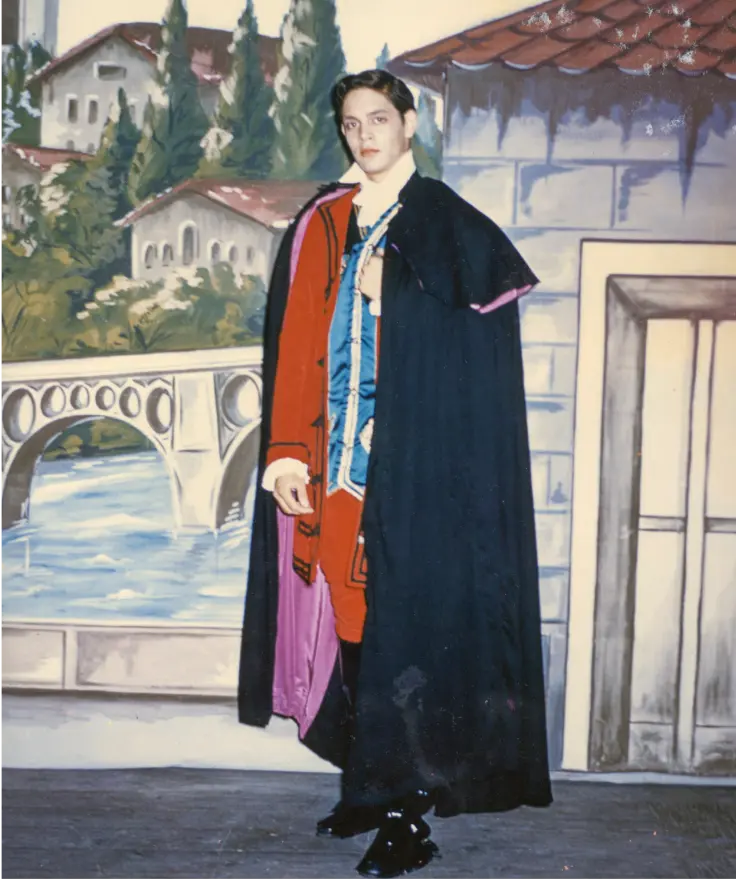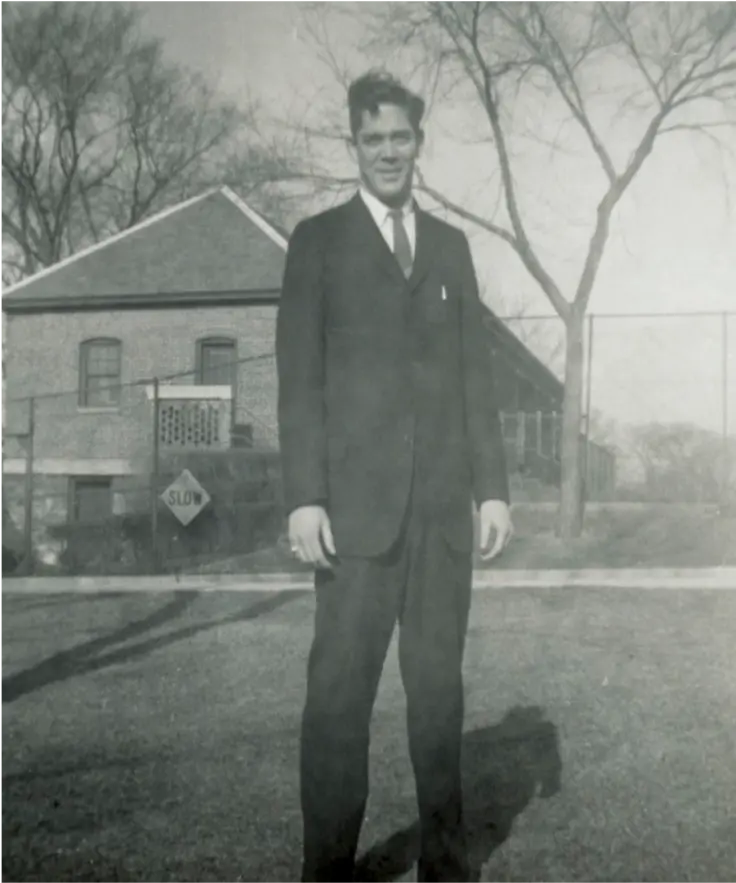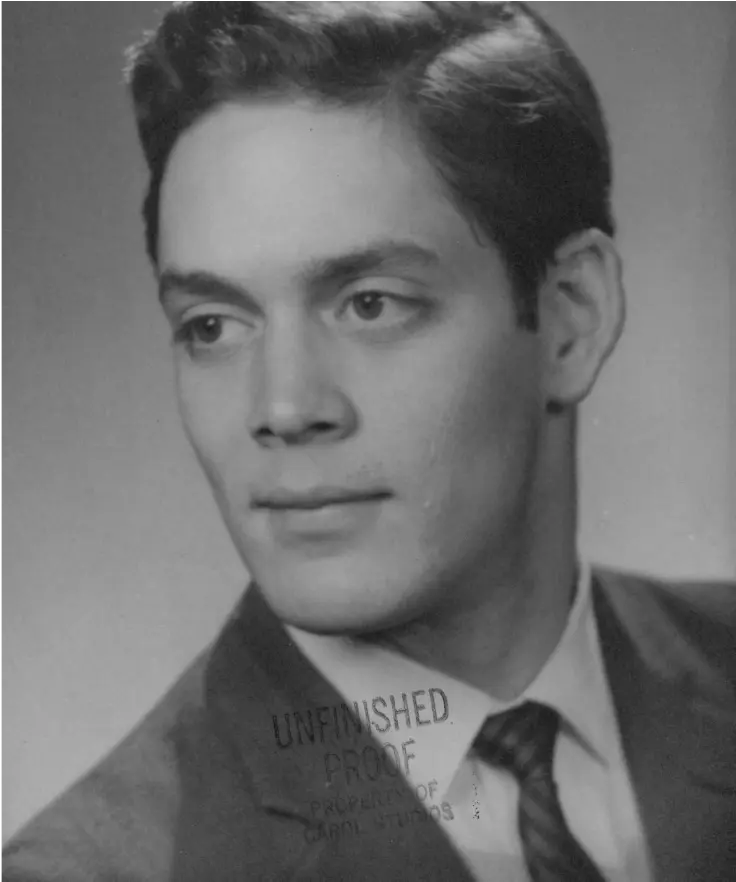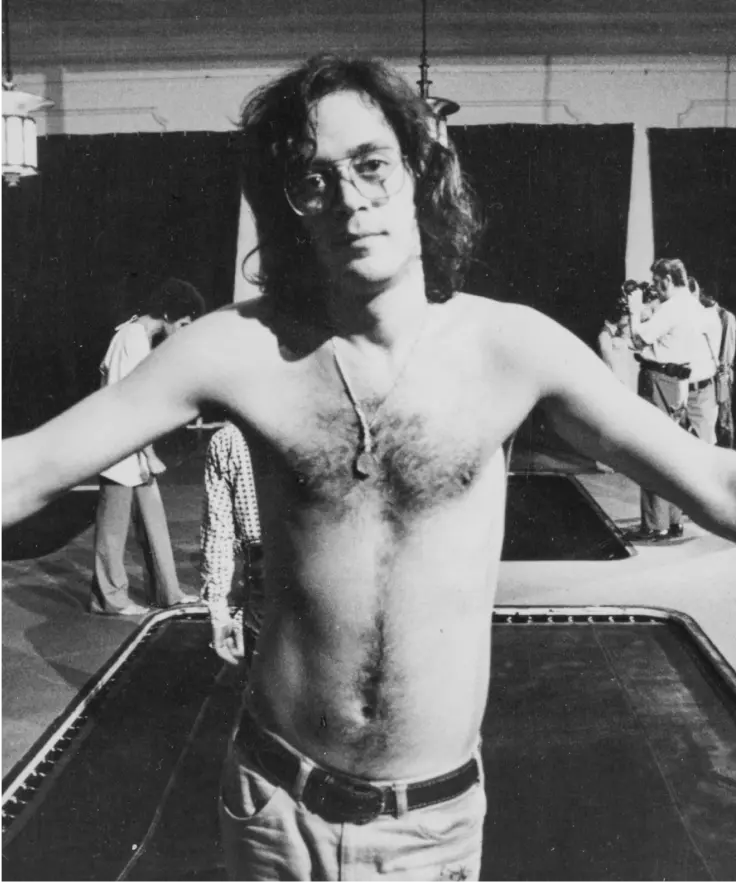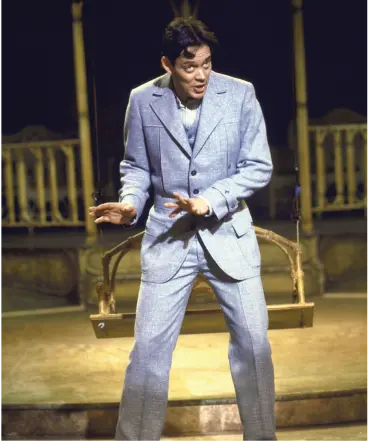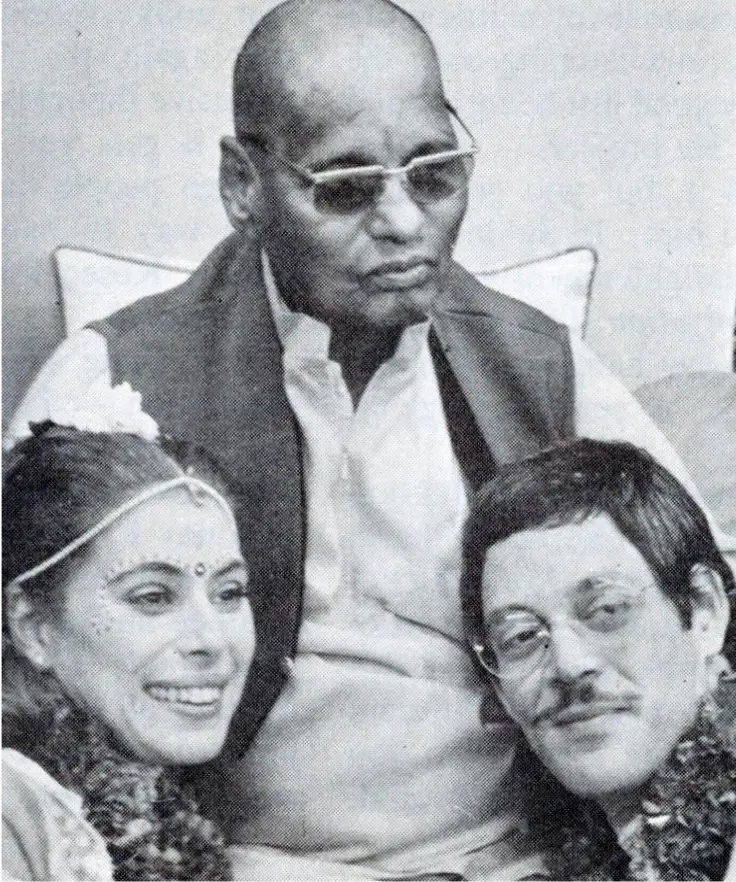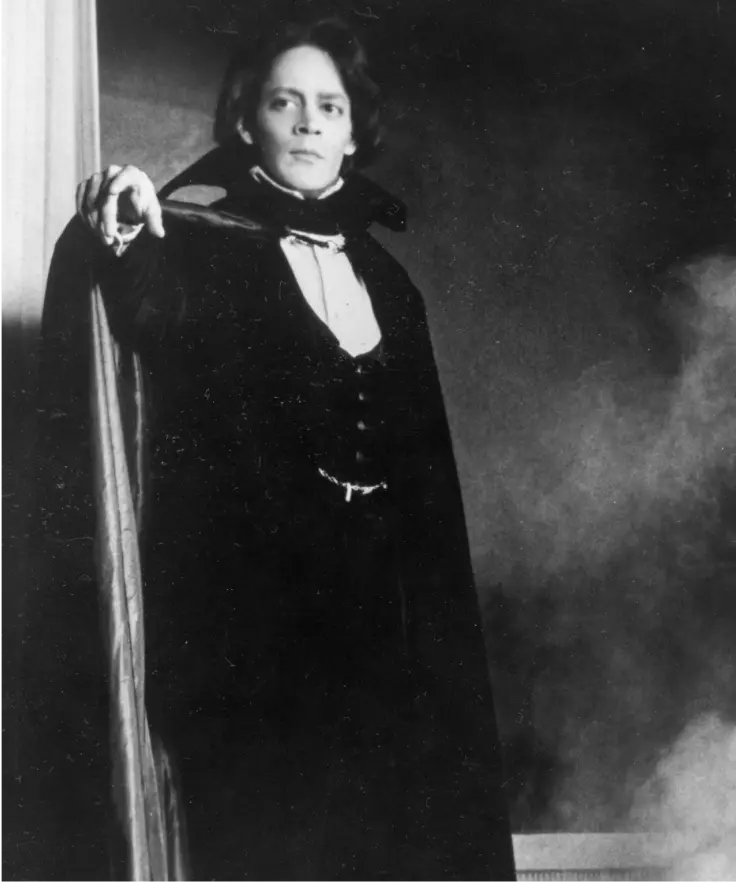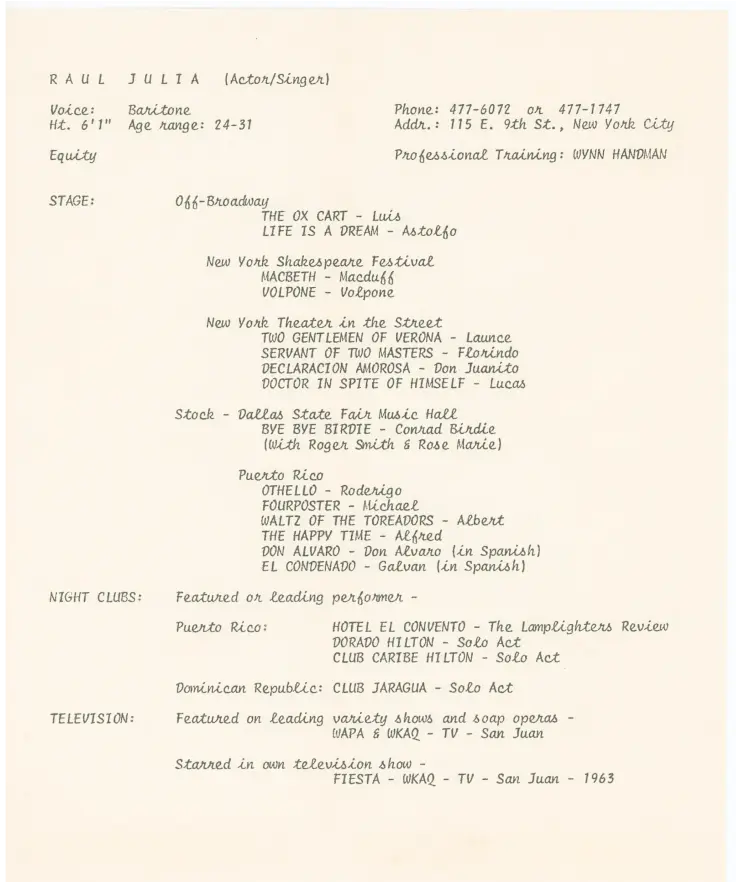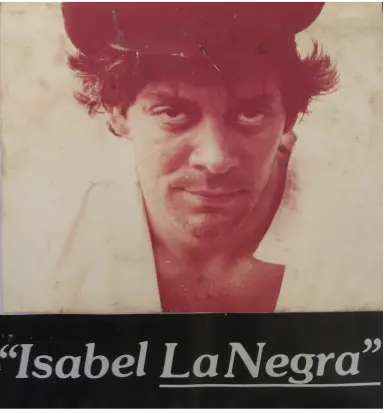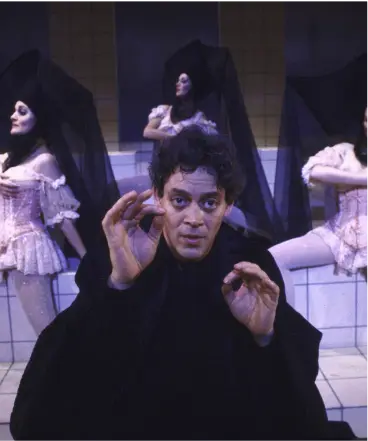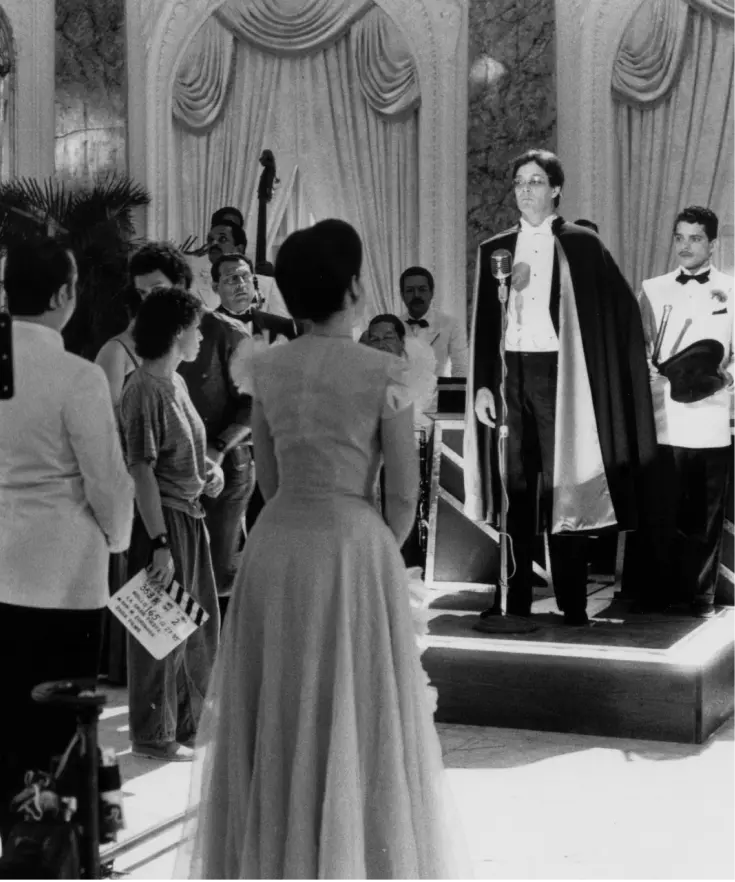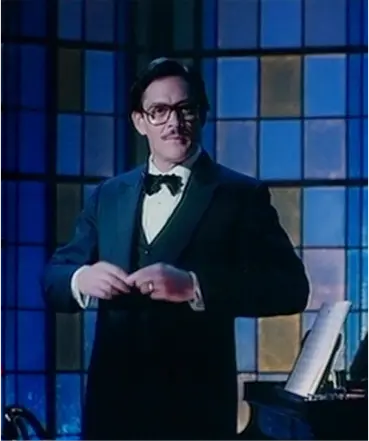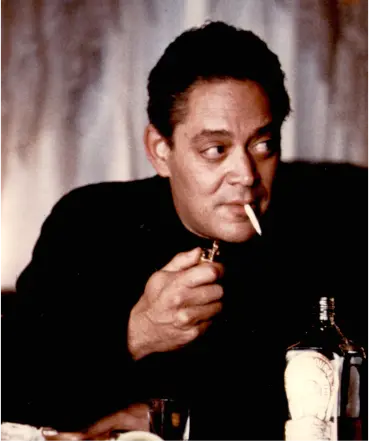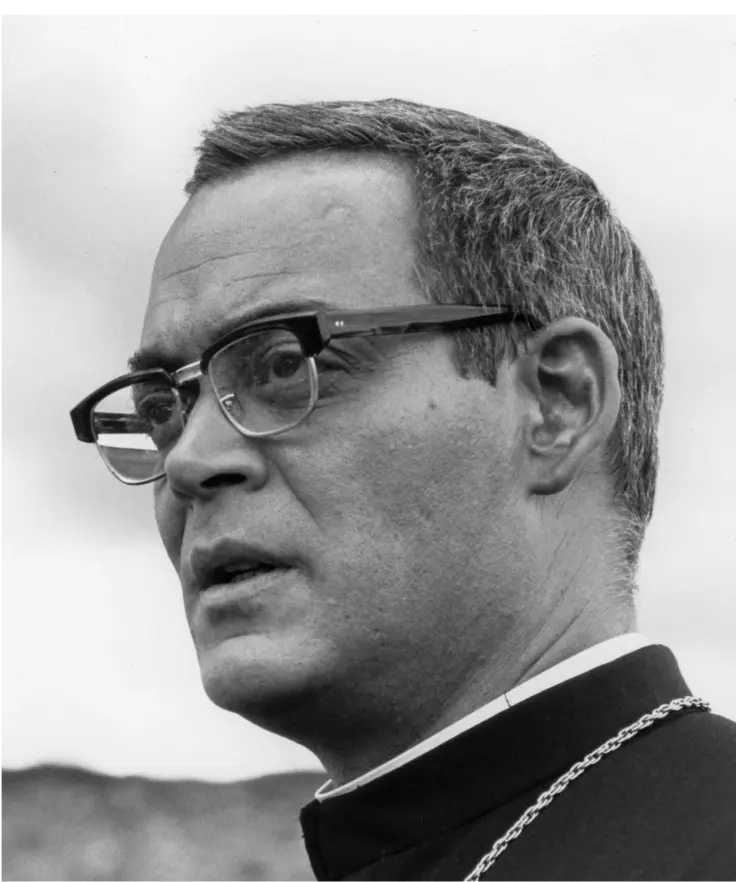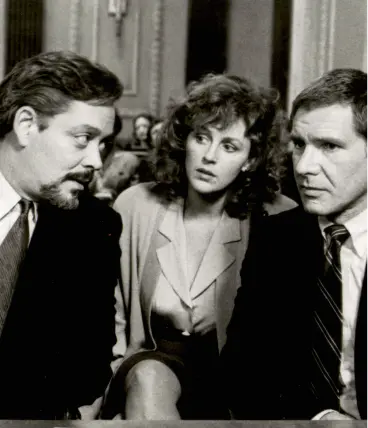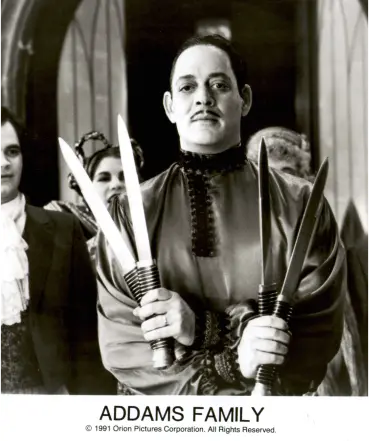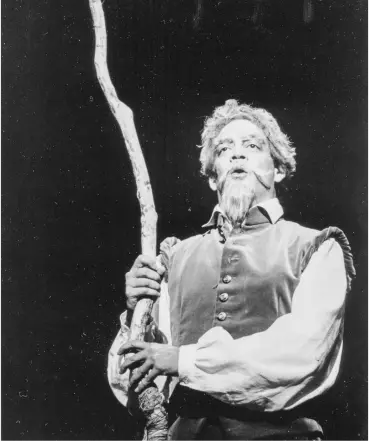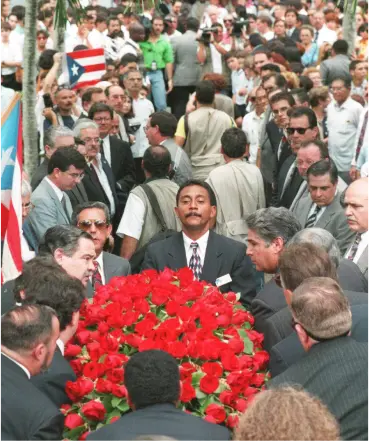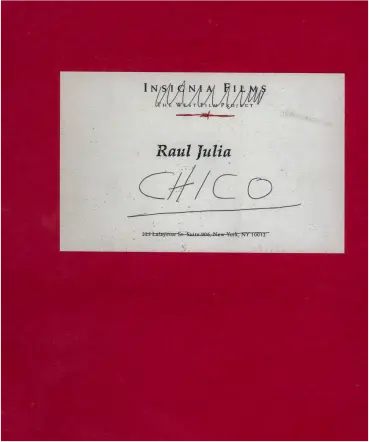For the new generation of Puerto Rican actors and film directors who did not know Raúl Juliá during his lifetime but share his passion for film and theater, the illustrious artist's historic achievements were key in paving the way for them to succeed in the competitive world of the performing arts beyond the island.
According to Glorimar Marrero and Ángel Manuel Soto, two Puerto Rican filmmakers who have transcended beyond Puerto Rico, Juliá is an artist who managed to export his talent and Puerto Ricanness from the heart of the island to connect with other figures in the mecca of cinema, without forgetting where he came from and demonstrating that dreams can be achieved through study, methodology, and acting preparation.
On the eve of the 30th anniversary of his death, which will be observed on October 24, 2024, both film directors see the versatile actor as a reference in the big screen and international theater.
“(Juliá) broke with the construction of the actor who can only play the Latin American, if not that he opened his expressive range to all kinds of acting register with a high value. When you review his career, it is a very rich cinematographic and theatrical work, despite the fact that he died very young and in full productivity... He worked with great figures such as the outstanding Meryl Streep, with whom he also did theater, just to mention a name of someone who is still alive,” acknowledges Marrero.
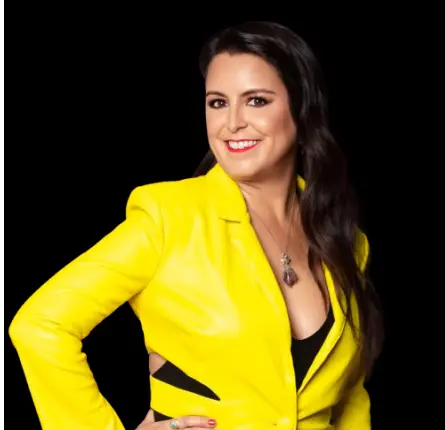
The filmmaker and screenwriter of “La Pecera” (2023) stressed that part of the legacy of the remembered actor of films such as “Kiss of the Spider Woman” (1985), “The Addams Family” (1991) and “Street Fighter” (1994) is the importance of studying his craft, the performance of his work as an actor, added to a rigorous discipline that allowed him to develop in the U.S. market.
Both Marrero and Soto, director of DC Comics' “Blue Beetle” (2023), consider that one of Juliá's earliest triumphs and most relevant life determinations was the mere fact that he opted for an acting career at a time when there were not many opportunities for Latino actors in the United States.
“He taught us the value of that risk and accepting the challenge of navigating a complex New York at that time, he didn't stop working. He didn't stop until he got the first nominations that made him stand out in the actors' guild, in that New York community that he later expanded with his legacy,” Marrero points out.
For Soto, Raúl Juliá always put Puerto Rico ahead and never compromised in his ideals. With his work he demonstrated that to be successful “you don't have to stop being who you are.” “That was something very beautiful that Raúl Juliá decided and that has been a reference for me,” shared the director, who is currently working on the filming of the movie “The Wrecking Crew” in New Zealand.
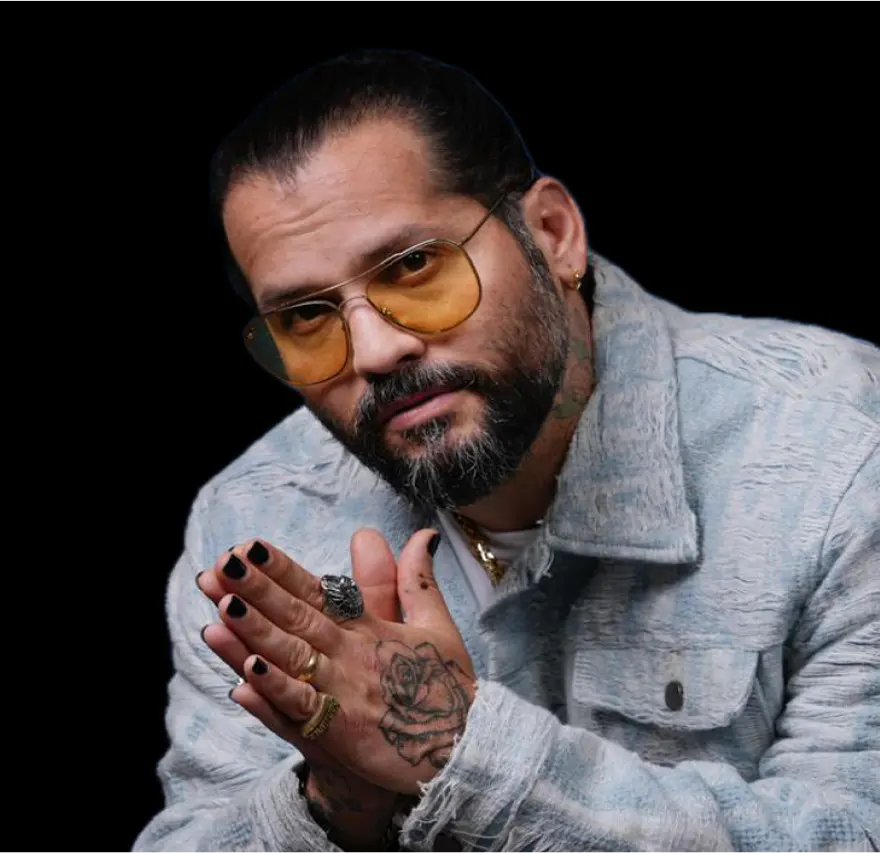
Both filmmakers agreed that Juliá was the role model when it came to having the reference of a Puerto Rican born and raised in San Juan who left the island with Puerto Ricanness in his chest, to make his way in an industry full of challenges.
“He raised the bar for what we can achieve and the level of quality we can reach. For me, he was a living example that someone like me can achieve his dreams and prove his worth in the big leagues. I saw that and thought: 'Hell, if Raúl Juliá can do it, so can I,' because we come from the same roots. That always motivated me,” says Soto.
The magnitude of what Raúl Juliá represented for the seventh art and for Puerto Ricans should be studied in the educational modules of the country, recommends Marrero, who along with Soto, recognizes that it is the duty of the new generations of actors and professionals, who aspire to have a career in the world of acting, to know and study the work and passion of the multifaceted actor for acting.
Living the legacy in the new lineage of actors
When Puerto Rican actor and singer Éktor Rivera first arrived at Broadway's Marquis Theatre in 2016 to star in the musical “On Your Feet!,” he didn’t know that Juliá had performed on that same stage during his distinguished career in the New York theater mecca. Juliá had starred in “Man of La Mancha” there in 1992. “Suddenly, physically being in the same theater was too special to forget,” he recalls.
Rivera had as a reference Juliá's masterful performances in Shakespeare in the Park productions - where he worked for 16 years - knew that his Broadway debut was the production “The Cuban Thing” (1968) and other performances in plays such as “Where's Charlie?” (1974), “The Threepenny Opera” (1976) and “Nine” (1982).
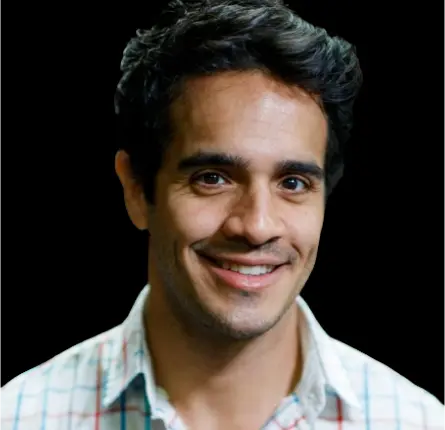
“Raúl Juliá opened doors for us, Puerto Ricans. At the acting level, those roles he played were out of the stereotype and now, years later, we are seeing a little more Latino representation in productions. He marked that path, he entered in a very complicated moment, where almost all the projects that were offered to Latinos were more stereotypes. He knew how to break with that and that is what we are living now thanks to Raúl,” says Rivera, who currently resides in California.
The singer and plastic artist is reflected in the figure of Juliá when he made the decision to leave his homeland as an adult and develop his career abroad. Rivera left Puerto Rico at the age of 34.
“One of the things I liked most about Raúl was that he gave me permission to be Puerto Rican abroad. We always look at the United States and tend to lean toward trying to be more American than the Americans themselves. But yet I remember his interviews where he would embrace his accent, where he would talk about being Puerto Rican, where he would do Shakespeare and not necessarily have to put on a pure British accent, but he would drone on to embrace what his culture is. In a way he gave me permission to be Puerto Rican in any space,” celebrates Rivera, who also carries in his resume having played the role of “Juan Perón” in the musical “Evita” in London
Rivera also recognizes that although the current representation of Puerto Ricans working in the American theater and film barely reaches 3%, the Latino presence in the industry is due precisely to the performance and respect that Juliá achieved with his talent and worth.
“Raúl, just as Rita Moreno did and does, shows that we have more colors, that we go much further and it is perceived in his acting work,” he concludes.
He believes that the figure of Juliá should be studied in school curricula from the perspective that “as Puerto Ricans we have the power to strengthen the security and identity of who we are.”
An invitation to dream big
Actress and singer Ana Isabelle, who has also managed to play roles on Broadway and in the movies with acclaimed director Steven Spielberg, in the musical film “West Side Story” (2021), summarizes Juliá's legacy with the simple statement: “There is a before and after Raúl Juliá, for Puerto Rican actors”, precisely because of the versatility that the actor demonstrated in the characters he played, outside of stereotypes.

“The achievements he had in his career, the roles he was able to play, marked a new stage and a new possibility for Puerto Ricans and Latinos. He has inspired me tremendously,” says the actress, who lived many years in New York, where she settled for a time to pursue her dreams in theater, music, and film.
The actress, who now lives on the island, but participates in auditions and travels for productions abroad, recalls that thanks to Juliá “today there are more of us who are daring to dream big and take the risk of living in New York or Los Angeles.”
However, she clarifies that it continues to be a challenge “every time a Latino or a Puerto Rican achieves a transcendental role, whether in Hollywood, on Broadway or Off-Broadway. I always remember that achieving it is a triumph.”
Raúl Juliá “was not a stroke of luck”
Puerto Rican actress Roselyn Sánchez has developed a fruitful career in the mecca of film, Hollywood and American television, being one of the few Puerto Ricans who has remained active for more than two decades in productions and acting projects.
Sánchez looked to the figure of Juliá for inspiration, as well as the work of actress Rita Moreno to achieve her dreams and develop her acting passion, along with her facets as a dancer, singer and model.
“Any young person who has the desire, restlessness and love to make their way in this world of entertainment outside the island, we look to figures like Raúl Juliá and Rita Moreno with the greatest reference and example because they are the two main pillars. They are the ones at the top and they are the ones we can all follow. They are from here in Puerto Rico, just like Benicio del Toro, who grew up in Puerto Rico, went to schools and colleges in Puerto Rico and attended universities here. They struggled and were lucky enough, with a lot of dedication, to dare to cross the pond, as one says, and make a career in the United States and internationally, which was very difficult to do,” she emphasizes.

For Sánchez, known for her work in Puerto Rican films such as “Cayo” (2005) and in U.S. television series such as “Fantasy Island” (2021-2023), Juliá's professional career has been a source of inspiration that motivated her to pursue her own dreams.
“It's important when you're growing up to have figures like Raúl Juliá, because you can't become something you don't see. It's important to have those role models, those people who inspire you, who push you... because if you don't see yourself represented on screen, it's very hard to have the faith to say: 'You know I'm going to do it'; although I've never verified that it has existed. There are some people who have had lucky breaks, that lottery can happen, but it is much easier when you are growing up, you see a person from your country and then you use that person as a role model. That person is your inspiration,” she reflects.
Despite the doors Juliá opened, the actress emphasizes that it is still complicated for Latinos to stand out in the world of show business in the United States. “It's still difficult,” she says.
The interest in Latin content and the opportunities are there, so today it is even more relevant, according to the producer, that the new generations study and know the life and work of Juliá as an example to follow.
“(Juliá) had an elegant career, a very clean career, one of absolute discipline and struggle. It wasn’t a stroke of luck. It wasn’t like today, where I’m an influencer, I have work on social media, brands and movies want me because I have so many followers, even though I have zero concept of what acting is,” he says.
Like Juliá, the actress considers herself of “the old school, of saying: 'You know what, if I'm going to dedicate myself to something, I want to study it, I want to study it daily for the rest of my life'... the most beautiful thing about this career is not the final result, but the process. In that sense, Raúl Juliá's life shows you that process,” concludes.


